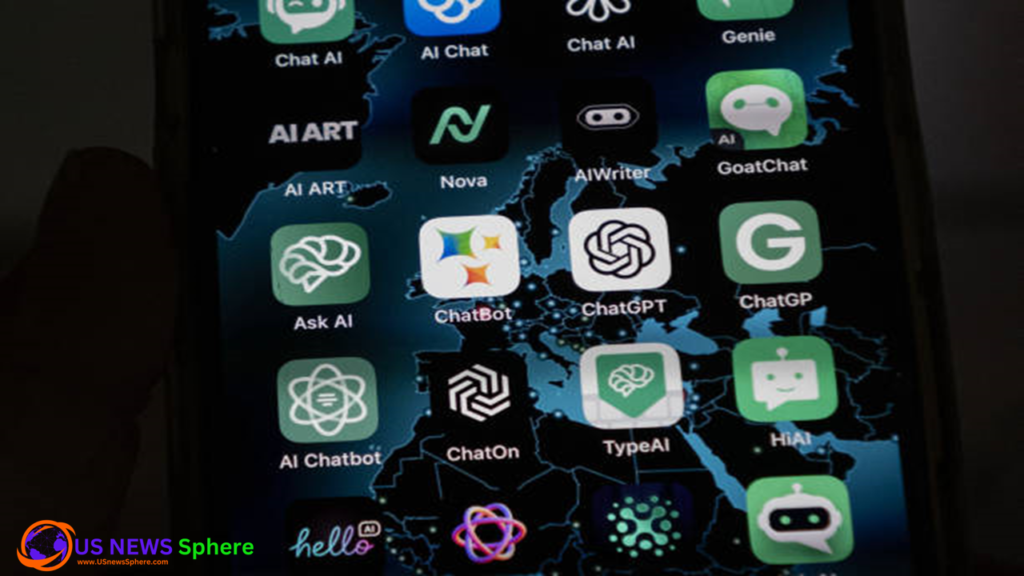The Dawn of AI in Healthcare: Chatbots Lead the Charge
In the ever-evolving landscape of healthcare, chatbots are emerging as game-changers. While traditional online searches often leave patients overwhelmed and anxious, AI-driven chatbots like ChatGPT promise a revolution in accuracy and user experience. This post delves into the potential of these chatbots in transforming medical consultations, the strides they’ve made, and the challenges that lie ahead. Join us as we explore the new frontier where technology meets medicine.
Table of Contents

In today’s digital era, many individuals have turned to “Dr. Google” for their medical inquiries. However, recent studies suggest that AI chatbots, like ChatGPT, may be more reliable and accurate than conventional online symptom checkers.
Exploring AI’s Diagnostic Skills
A study spearheaded by Dr. Riley Lyons, a fourth-year ophthalmology resident at Emory University School of Medicine, evaluated the accuracy of ChatGPT in diagnosing eye-related complaints. The findings, published in medRxiv, showed that ChatGPT’s diagnosis was strikingly close to that of human doctors. What’s more, its performance overshadowed the symptom checker on the widely used WebMD site.
Yet, ChatGPT isn’t the only AI tool making waves in the healthcare industry. Google’s Med-PaLM, designed specifically for medical use, also received commendation for its diagnostic capabilities in a Nature report.
The Dual Edges of AI Chatbots
Despite the promising outcomes, the introduction of AI in healthcare is not without its challenges. The main concern lies in integrating such technology with the strict protocols typically seen in healthcare, where new drugs and devices undergo rigorous testing before approval.
Moreover, while many health professionals are appreciating the AI’s empathy—some even finding it more compassionate than human doctors—there are fears about privacy, bias, transparency, and the lack of regulation.
Mason Marks, a health law specialist at Florida State University, expresses reservations, citing that using AI might lead to biases in treatment recommendations. Similarly, there’s worry about the commercial use of patients’ data.
However, there’s no denying the popularity of these chatbots. As John Ayers from UCSD points out, millions have access to ChatGPT and are currently relying on it for answers.

The Way Forward
OpenAI, the organization behind ChatGPT, insists that its models are not tailor-made for medical advice and should not be considered a substitute for professional consultation.
Regulation remains a hot topic. Though FDA Commissioner Robert Califf acknowledged the importance of regulating large language models, concrete steps are yet to be taken. Meanwhile, prestigious institutions and tech giants are diving into the potential of AI in healthcare. The Mayo Clinic’s collaboration with Google on the Med-PaLM 2 chatbot and WebMD’s partnership with HIA Technologies Inc. underscore the burgeoning interest in the sector.
While Dr. Google may soon be overshadowed by Dr. Chatbot, the healthcare community and patients alike should tread with caution and optimism. Only time will tell if AI can become an integrated, trustworthy partner in medical care.
The emergence of AI-driven chatbots in the healthcare domain signifies a transformative shift. Their potential to enhance diagnosis accuracy and improve patient experiences is undeniable. Yet, with innovation comes responsibility. The medical community, tech developers, and regulatory bodies must collaboratively navigate this uncharted territory. Prioritizing patient safety, data privacy, and transparency will be crucial.
As the healthcare landscape evolves, one thing is certain: technology will play an instrumental role. Embracing the benefits of AI, while diligently addressing its challenges, will pave the way for a future where technology and human expertise harmoniously coexist, ushering in an era of enhanced healthcare for all.





